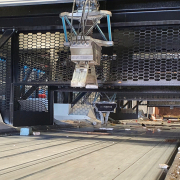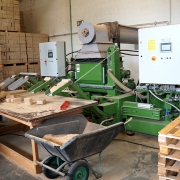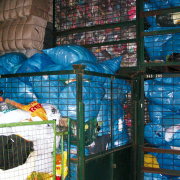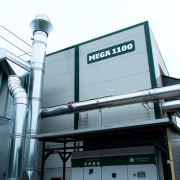Turboden First Biomass ORC Project in South America for the Climate Change Mitigation
A 3.7 MWe Organic Rankine Cycle (ORC) system supplied to La Gloria S.A. for the disposal of 35.000 ton/y of rice husks in Parral, Chile that will contribute to save 8.567tCO2-eq./year, an area equivalent to 3.360 soccer fields, comparable with the size of the center of Santiago.
Turboden S.p.A., a Mitsubishi Heavy Industries Group Company, is the supplier of the 3.7 MWe ORC system to La Gloria S.A., for the production of electric energy from agricultural residues such as rice husk. The generated power is supplied to an electric company and reduces greenhouse gas (GHG) emissions by replacing the grid power. In addition, this project prevents air pollution caused by open burning of agricultural residue or avoid additional CO2 production when the residual is leaving on the fields.
By adopting Organic Rankine Cycle technology, which does not require water consumption, it also contributes to the climate change adaptation regarding water scarcity issues that Chile is facing in the last years.
La Gloria S.A. signed an agreement with local Chilean rice producers to solve the problem of husk waste management. In fact, due to a law of 2018, each producer must be responsible for his own residues during the entire waste disposal chain.
La Gloria collects the rice husk and uses it as fuel burned in an oil boiler supplied by Uniconfort Srl. The thermal power generated will be used to produce electricity in the Turboden ORC turbogenerator biomass system that will be sell to the grid, contributing to the Chilean commitment in the transition to renewables.
Turboden designed the ORC to be modified later in a CHP cogeneration mode, where part of the residual heat will be used for the future forest wood drying project.
This project awarded the JCM (Joint Credit Mechanism) of the Japan Government: it facilitates diffusion of leading low carbon technologies, products, systems, services, and infrastructure as well as implementation of mitigation actions, and contributes to sustainable development of developing countries.
It appropriately evaluates contributions to GHG emission reductions or removals from Japan in a quantitative manner, by applying measurement, reporting and verification (MRV) methodologies, and uses them to achieve Japan’s emission reduction target. The JCM contributes to the ultimate objective of the UNFCCC by facilitating global actions for GHG emission reductions or removals, complementing the CDM.
Today Turboden counts four projects in rice husk in Italy, Nicaragua, USA and Chile and over 300 biomass plants in the world.
Source: Turboden S.p.A. (Brescia, Italy, August 04, 2021)








